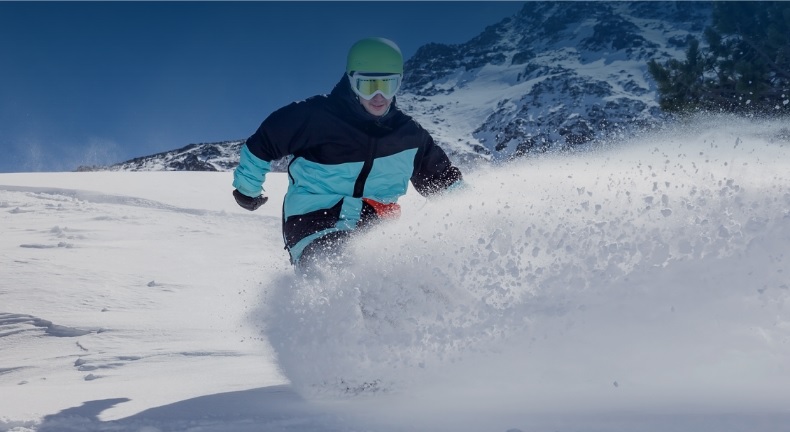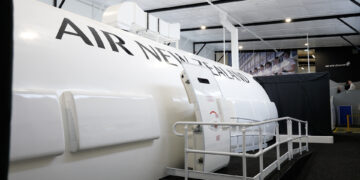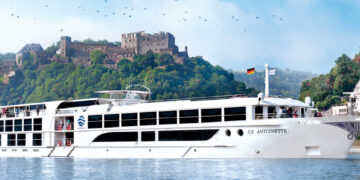UN Tourism Spotlights: Elevating Mountain Tourism with Innovative Products and Experiences

Emphasizing the enhancement of varied experiences and the support for skilled individuals is crucial for fostering sustainable and ethical tourism growth in mountain regions.
At the 12th World Congress on Snow, Mountain, and Wellness Tourism, significant hurdles were addressed, including climate change and changing consumer preferences. The congress highlighted the vital contribution of tourism to safeguarding the delicate mountain ecosystem, enhancing the resilience of mountain communities, and conserving local traditions.
During the Five-Year Action Plan for Mountain Region Development under the auspices of the United Nations, the congress delved into various topics. These included the focus on health and wellness tourism, the pursuit of sustainability, the development of high-end market segments in mountain locales, the introduction of new tourism products, and the effective engagement and preservation of talented personnel.
Key discussions also centered on the crucial task of tracking visitor numbers to mountainous areas. This is seen as an essential step in maximizing the industry’s potential, advocating for policy-making based on solid evidence, and ensuring the responsible oversight of tourism. This approach was outlined in a report by UN Tourism, created in collaboration with the Food and Agriculture Organization of the United Nations (FAO) and the Mountain Partnership (MP), and showcased during the event.
Opening the Congress, Prime Minister, Xavier Espot, stated: “Tourism in Andorra has recovered pre-pandemic numbers, with more than 9 million tourists and 12 million overnight stays in 2023. However, it is important to seek a balance that ensures environmental continuity and the well-being of people, moving towards a model based on sustainability to find the balance between quantity and quality. Tourism should not be perceived as a problem, but as part of the solutions to the great challenges that the future brings, because a tourism that is respectful of nature, culture and society guarantees resources for the future.”
Natalia Bayona, Executive Director at UN Tourism, recalled that “Tourism is a lifeline for many communities in mountain regions. At the same time, it can play a leading role in protecting these important ecosystems. It can provide new opportunities for conservation and drive the development of local communities. I trust that this Congress will help us move towards a better, more innovative, inclusive and sustainable growth for people and planet.”
A distinguished panel convened to discuss strategies for fostering growth in mountain tourism through diversification, innovation, and sustainability. The panel featured notable figures such as Jordi Torres Falcó, the Andorran Minister of Tourism and Commerce; Rosana Morillo Rodriguez, Spain’s Secretary of State for Tourism; and Alessandra Priante, the head of Italy’s National Tourism Board (ENIT). The discussions emphasized the need for a cohesive strategy that unites stakeholders behind a shared goal of developing mountain tourism in ways that are sustainable, resilient, and beneficial to local communities.
The 2024 Congress, building on insights from the 2022 session, introduced a special emphasis on health tourism, including both medical and wellness aspects, as a promising area for mountain regions. This new focus aims to leverage the unique benefits mountains offer, positioning them as prime destinations for health tourism and addressing the evolving preferences of modern travelers by ensuring year-round appeal.
The congress showcased experiences from leaders in the health tourism sector, including Csilla Mezősi from the European Spas Association, Lászlo Puczko of Health Tourism Worldwide, Joan Muro of the Health Tourism Association of Andorra Health Destination, and Emma Haefeli of CHENOT GROUP in Switzerland.
Highlighting the role of tourism in rural development, the event also featured presentations from villages recognized as Best Tourism Villages by UN Tourism, such as Saas-Fee in Switzerland, St. Anton am Arlberg in Austria, and Ordino in Andorra. These villages exemplified innovative and sustainable strategies to overcome seasonal fluctuations in tourism demand.
The event attracted over 300 attendees from 14 countries to Andorra, with additional participants joining via live stream. The diverse roster of speakers included experts from Slow Food Carinthia in Austria, National Geographic, l’Agence des Pyrénées, the Sustainable Alpine Tourism Initiative, Pic du Midi, the Creative Tourism Network, Mabrian from Spain, Horwath HTL, and prominent academic institutions like CETT Barcelona and the Bella Vista Institute of Higher Education in Switzerland.
Minister of Tourism and Commerce of Andorra, Jordi Torres Falcó, concluded: “This year we have introduced a new segment, wellness, demonstrating that in the tourism sector we evolve and adapt to new tourism trends. We also face the need to continue working to advance the Congress, allowing us to respond to the needs of the sector, providing knowledge and tools to improve the mountain tourism offer and, at the same time, become a laboratory where we can delve deeper into topics as varied as the integration of tourism in local communities, or education and training”.
The post UN Tourism Spotlights: Elevating Mountain Tourism with Innovative Products and Experiences appeared first on Travel And Tour World.
Source link















































